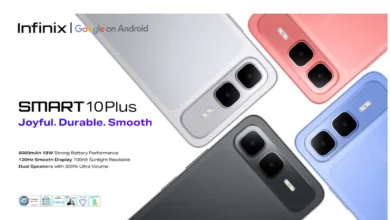Electric Cars in Nigeria: Glamour, Cost, and Can We Actually Make the Switch?
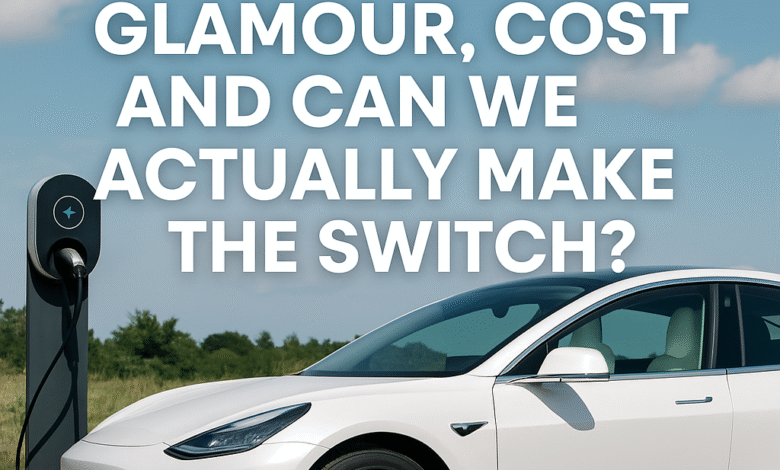
When Nigeria gained independence in 1960, part of the dream was self-sufficiency, the freedom to decide our own path. Decades later, a new kind of independence is on the horizon: independence from petrol. And at the centre of this conversation are electric cars.
In the last few years, have become a global trend, sparking conversations from Lagos to London. But in a country where fuel scarcity is routine, electricity is unstable, and most people still buy used Tokunbo cars, the big question remains: Is it sustainable in Nigeria?
Let’s take a closer look at the glamour, the cost, and the reality of making the switch to electric cars in Nigeria.
The Glamour of Electric Cars Design
Wondering what kitchen appliances are worth your money? Here are 7 appliances many Nigerians swear are worth every kobo.
Redmi Note 13 Pro vs Poco X6 Pro. Compare design, display, performance, camera, battery, software, and price to see which phone fits your lifestyle.
Torn between Realme 12 Pro and Redmi Note 13 Pro? We compare design, cameras, battery, and performance to help Nigerians choose in 2025.
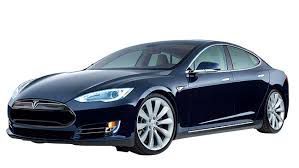
When you think of electric cars, what comes to mind first is their design. They’re often stunning to look at; smooth curves, futuristic interiors, and eye-catching dashboards that make regular petrol cars look dated. From Teslas with their iconic touchscreens to BMW’s electric i-series, Audi’s E-Tron, Mercedes-Benz EQ models, and even Nissan’s Leaf, EVs have become a new definition of sleek and modern.
But glamour doesn’t only live at the top end of the market. Even more affordable EVs like the Suzuki S-Presso, which many Uber drivers are already using in Lagos thanks to partnerships with mobility companies— Uber, Moove and Suzuki, carry that modern look. They are compact yet with stylish builds that make them appealing for everyday use. They may not turn heads like a Tesla, but they represent accessibility and practicality while still standing out from regular petrol cars in different areas.
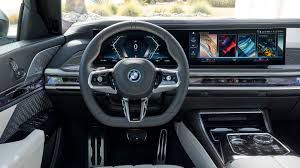
Status Symbol
Of course, in Nigeria, glamour is also about social standing. Owning an EV today is not just about transport, it is a signal of wealth, modernity, and luxury.
For artists, tech entrepreneurs, and wealthy elites, it has become a way of showing they’re ahead of the curve. In fact, a recent viral tweet showed music star Asake proudly posing with his Tesla, a reminder that these cars are as much about status as they are about sustainability.
In a society where cars already reflect identity and class, electric cars have quickly become the newest badge of prestige.
The Cost of Electric Cars in Nigeria
Now let’s talk money, because glamour always comes at a price. Electric cars are expensive in Nigeria, and not just in the way people casually describe something as “expensive.” A brand-new Tesla Model 3, which is considered one of the more affordable EVs globally, costs from $44,130 upward abroad.
By the time you import it into Nigeria, pay duties, and handle logistics, that price can climb to about ₦70 million, thereabout or more. Luxury models like the Tesla Model X or Porsche Taycan that cost $103,900 depending on the model, which is about ₦150 million. Even smaller electric options like the Hyundai Kona EV, which Stallion Group assembled in Lagos, retailed for around ₦30 million when it was introduced in 2020. On the lower side, compact EVs like the Suzuki S-Presso used in Uber fleets are far cheaper, around ₦20,000,000, but with the Uber partnership, they are available for rental for ₦56,400 per week
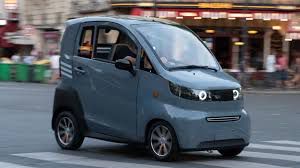
So yes, electric cars are more expensive and the reasons are clear:
-
The battery packs are expensive to produce, often making up nearly half the total price of the car.
-
The software and onboard technology that make EVs run smoothly also add to the cost.
-
There are import duties and logistics, which push prices even higher once they land in Nigeria.
-
Finally, because there isn’t a strong local EV market, there’s little competition to help reduce prices.
But are they worth it?
-
In terms of performance, many EVs offer impressive speed, instant acceleration, and a smooth driving experience. for instance, an EV can cover 150 and 500 kilometers on a full charge.
-
They’re also eco-friendly since they don’t emit harmful fumes, which is a big plus for cities like Lagos that struggle with air pollution.
Can Nigerians Actually Make the Switch?
This is where the conversation gets tricky. Glamour and performance aside, the big question is whether most Nigerians can realistically switch to electric cars.
RELATED: Thinking of Importing a Used Car from the US? Here’s How to Do It Right
-
Another part of the story is trend: Among the rich, especially entertainers and music stars, buying EVs has already become a lifestyle choice. From Asake to other A-list celebrities, owning an electric car is a way of reinforcing their modern image.
But there’s also a lower end of the switch happening quietly. The Suzuki partnership with Moove and Uber to import electric cars specifically for ride-hailing in Nigeria means regular people are beginning to encounter EVs during their daily Uber rides.
-
Still, infrastructure remains a huge obstacle: Charging stations are scarce, with only a handful in cities like Lagos and Abuja. Without reliable public charging networks, most people would have to rely on home charging, which raises another problem: electricity supply.
-
Nigeria’s power grid is unstable: With frequent outages, and diesel or petrol generators remain the backup for most households. Running an electric car on generator power defeats the purpose of being eco-friendly and adds more cost.
However, there are glimmers of possibility.
The Hyundai Kona EV assembled by Stallion Group in Lagos was the first locally assembled electric car in Nigeria, proving that we can produce EVs here. If more Nigerian manufacturers and government policies support local production, prices could drop over time.
Imagine if Innoson Motors, Nigeria’s own car manufacturer, begins producing affordable electric vehicles designed for our roads and realities. That could change the narrative completely.
RELATED: Don’t Skip These 11 Checks When Buying a Tokunbo Car in Nigeria
The switch is also tied to values: Nigerians are aspirational; we love innovation, style, and progress. For the upper class, switching to electric cars is already happening because the glamour and prestige align with their lifestyle. For the everyday Nigerian, the entry point may be through smaller EVs used in transport services. Balancing these two ends, the luxury EVs of the rich and the compact EVs for mobility services, shows that the journey has started, even if slowly.






